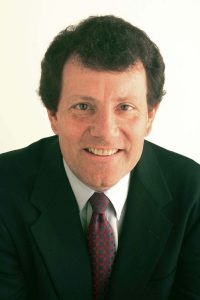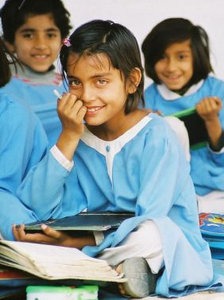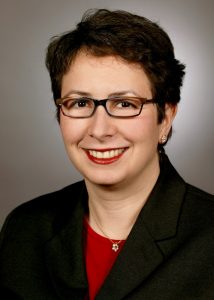Welcome to the September 2009 issue of the Global Washington newsletter. If you would like to contact us directly, please email us.
IN THIS ISSUE
- Note from our Executive Director
- Spotlight: Global Washington Annual Conference Registration Now Open
- Featured Organization: Teachers Without Borders
- Changemaker: Diana Pallais – Forging Bridges of Opportunities Across Contrasts
- Global Entertainment: The Post-American World
- Announcements: Conference Sponsorships Still Available, Washington State Policy Fellowship Program, Stimulus Funds Event Coverage
- Global Washington Upcoming Events
- Other Upcoming Events
Note from our Executive Director
I am excited to share with you some of our plans for our upcoming conference.
Washington State stands at the intersection of four important realities: 1) a long history of global trade and global perspective, 2) proven entrepreneurial/philanthropic innovation, 3) home base for a large array of global development organizations, including the world’s largest private foundation, and 4) a proven track record of incorporating technology and human ingenuity into philanthropic endeavors, producing fresh approaches and unprecedented results.
This combination of traits has led to an increasingly energized and synergistic global development community. Through the annual conference we seek to foster collaboration in our community—and with business, non-profit, policy, and academic leaders– to forge new alliances, eliminate duplication of effort, and amplify our impact globally for the benefit of the people we serve.
Our goals for the conference are to engage the global development sector in setting priorities for our work with a unified voice. By using cutting-edge social networking technology (‘digital democracy’) as well as traditional approaches, our goal is to give all members of the global development community an equal say in setting priorities for our sector’s work, creating a unified voice. With this unified voice, we can communicate about our mission more clearly, influence decision-makers, and effect large-scale change around the world.
I hope that you will be engaged in this process of setting priorities over the next few months prior to the conference. We will send you more information on how to get started on this in the next week.
In unity,
Bookda Gheisar, Executive Director
Spotlight: Global Washington Annual Conference Registration Now Open
 Global Washington is excited to announce that registration is now open for our annual conference, A Blueprint for Action. This conference will harness the enormous energy of Washington State’s global development advocates and use the power of our state’s revolutionary technology and entrepreneurial expertise to change our world together.
Global Washington is excited to announce that registration is now open for our annual conference, A Blueprint for Action. This conference will harness the enormous energy of Washington State’s global development advocates and use the power of our state’s revolutionary technology and entrepreneurial expertise to change our world together.
It is an honor to present Nicholas Kristof, Pulitzer Prize-winning journalist, as our keynote speaker. He recently published a book with his wife about women in the developing world entitled Half the Sky: Turning Oppression into Opportunity for Women Worldwide. Previously, he was associate managing editor of The Times, responsible for the Sunday Times. As we mentioned in last month’s newsletter, the New York Times Sunday special section focused on women and development, and included some great articles. Engender Health also has an interesting on-line reader’s guide to Half the Sky, chapter by chapter, with suggestions for what readers can do to translate outrage into action.
This dynamic conference is marked by an innovative social media approach to give all community members an equal voice in setting the priorities for our sector. Next week we’ll announce details for engaging in this process of ‘digital democracy’. The conference will also feature breakout sessions, panels and speakers on a range of topics including women in poverty, education, health and much more. Click here to view the details and to register now!
Take advantage of our early bird registration discount by registering before October 13th!
Featured Organization: Teachers Without Borders
The Vision of Teachers Without Borders
 A great teacher can pinpoint the exact place to stimulate the health of a village, a region, an entire continent. The more than 59 million teachers in the world can play a leadership role in global development. They know who is sick, who is missing, who has been abducted into the sex trade or conscripted into a military gang, who has been orphaned by AIDS, who is achieving and who is not.
A great teacher can pinpoint the exact place to stimulate the health of a village, a region, an entire continent. The more than 59 million teachers in the world can play a leadership role in global development. They know who is sick, who is missing, who has been abducted into the sex trade or conscripted into a military gang, who has been orphaned by AIDS, who is achieving and who is not.
Teachers Without Borders, started in Seattle in 2000 by Dr. Fred Mednick, supports teacher leaders, worldwide, with professional development opportunities and tools that connect them with information and each other so that they may play a more vital role in their communities. It is a non-profit, with a small staff, and a large community of talented teachers. Click on: Core Programs to learn more.
TWB’s Current Projects. Click on the link and learn more about each of them.
Open Education Resources – Teachers Without Borders is committed to removing barriers to educational resources available online.  In so doing, it is working with the William and Flora Hewlett Foundation to provide opportunities such as TWB Toolset, which provides a free social network, action groups, and courseware.
In so doing, it is working with the William and Flora Hewlett Foundation to provide opportunities such as TWB Toolset, which provides a free social network, action groups, and courseware.
Clinton Global Initiative – Teacher professional development for Cameroon, Ethiopia, Kenya, Nigeria, and Rwanda. Supported by the Cisco Public Benefit Investment Group, Teachers Without Borders is providing teacher professional development and evaluation, as well as a Certificate of Teaching Mastery (connected to each of the national standards), and support for both local non-governmental organizations and the Ministries of Education.
Mediterranean Youth Technology Club (MYTecC)– This program for youth of the Mediterranean region and the Arab world promotes access to information and each other. Students in eight countries (Cyprus, Egypt, Israel, Morocco, Palestine, Portugal, Turkey, Yemen) enroll in a two-year, after school program designed to learn about each other across borders, gain skills in technology, and  improve their English through IT and English Language Proficiency Curricula. They are prepared for international certification as IT Professionals. MYTecC classroom activities are both central to and supported by a virtual community of teachers and students.
improve their English through IT and English Language Proficiency Curricula. They are prepared for international certification as IT Professionals. MYTecC classroom activities are both central to and supported by a virtual community of teachers and students.
Youth for Habitat – Use of TWB Tools to network Turkish youth volunteer organizations. Available entirely in Turkish, this program promotes participatory democracy and information technology skill development.
Scholastic’s TeacherShare – TWB was chosen as the organization to help Scholastic Magazine (largest K-12 publisher in the United States) embrace open educational resources for its 2.5 million users, per month
Recent News about TWB
Teachers Without Borders’ Founder, Dr. Fred Mednick, has been invited to speak at the Global Creative Leadership Summit, a gathering of heads of state, Nobel Prize winners, and achievers in innovation designed for social change. The TWB programs are also expanding; the Mexican government shall launch a version of the TWB Toolset for over 1,000 teachers, this fall, and programs in China and sub-Saharan Africa are receiving national attention and accreditation.
Changemaker: Diana Pallais – Forging Bridges of Opportunities Across Contrasts
 Dr. Diana Pallais’ outlook in life has been framed by a study in contrasts. And her vocational calling has been devoted to forging bridges of opportunities across those contrasts. This is her story.
Dr. Diana Pallais’ outlook in life has been framed by a study in contrasts. And her vocational calling has been devoted to forging bridges of opportunities across those contrasts. This is her story.
Her country of provenance, Nicaragua, has a GNI/capita of $930 USD. Her adopted country, the United States, has a GNI/capita of $44,700 USD. Nicaragua’s political development has been marked by violent transitions, and weak political institutions. The United States has one of the most nimble institutional platforms to absorb socio-political change and empower its citizenry. But the contrasts are more complex than this pattern suggests. Thanks to her Nicaraguan roots, and the palpable manifestations of its political milestones, Diana has been acutely aware of the importance of being a participant in history not just an observer. The sense of efficacy that guides Diana was perhaps enabled by the smaller scale of Nicaraguan politics. Perhaps. But it certainly could not have happened without the towering influence of her family, especially a larger-than-life grandmother, Juanita Sampson de Argüello, who instilled upon her granddaughter not only a sense of social justice, but the imperative to take action. And to understand this influence is to appreciate the cultural contributions that were possible only in a place like Nicaragua, where the magical and the real are often interchangeable (e.g., Diana’s grandparents’ neighbors in León claimed to have had a “rabbit-cat” as a pet), where the cultural and religious traditions are felt and practiced intensely by individuals and the community with something that borders on street theater as an outlet of the religious devotion (e.g., Good Friday in León is observed with a Mass followed by an actual funeral procession where people of all socio-economic classes dress in solemn attire with the emotions to match), story-telling and poetry are a sport in a world where media are not abundant but the imaginative rivers run deep. Resilience and improvisation are virtues that abound.
What does all this have to do with Diana´s professional endeavors at Microsoft, which one could crudely reduce to selling Windows and Office worldwide? A lot actually. You see, Diana approaches her job as an opportunity to bring empowerment to the masses through the magic of software, but she is aware that this can only happen in the proper context with the appropriate array of public and private partners and in alignment with public policy objectives. So, as part of Microsoft´s growth strategy, she pioneered a new business model of commercially viable public-private partnerships (PPPs). The vision is to empower e-citizens to enable e-government. In four years, Microsoft’s Partnerships for Technology Access (PTA) initiative has reached over 3 million new e-citizens through some of the most challenging economic environments. We are not talking about charity here. These are 3+ million paying customers who purchased not only a PC with genuine software, but the opportunity to put it to valuable use as they leverage government benefits intended for them. But the PTA initiative, which Diana founded, delivers these goods affordably through a fresh line of credit brokered by a bank through the PPP consortium; the bank in turn was assisted by others in the consortium to establish collateral or a reliable repayment mechanism.
All of this was part of the business design Diana had in mind from day one. She noted that there was a perfect correlation between Microsoft´s client base of approximately 1 billion citizens in the world and those who had access to formal credit. So to go beyond this base—using credit as a vehicle of access for more customers—the challenge transcended the software industry. Diana understood that banks would not lend to the 5 billion unbanked citizens unless there was appropriate collateral, information about creditworthiness, or a reliable repayment system. In other words, there were market failures to overcome. And, as a trained Political Economist, Diana knows that the state is at its best when it is solving market failures. A public-private partnership (PPP) model was the logical next step for Diana to explore.
Since PPPs were only a concept to her, she approached it a couple of different ways. First, she got close to the PPP work that her Egyptian colleagues at Microsoft had pioneered as they enabled 300,000 citizens to purchase their first PCs. Second, as she always does, she mapped it out logically to form a model that could be sustainable beyond the exceptionally favorable circumstances she found in Egypt. She knew that it had to be a win-win for the stakeholders, but the definition of “win” is different for each of them. Closing the digital divide is a compelling business objective for technology companies that stand to profit. But for the rest of the stakeholders—banks, telcos, government officials—digital inclusion is something they can support in principle but not be moved to take an active role in themselves. Diana understood that, for instance, for a government official to move from a tacit supporter of narrowing the digital divide to a stakeholder in its quest, she had to offer them the opportunity to narrow some other divide: the health divide, education divide, pension reform, workforce competitiveness, etc. In this sense, technology access was a means to an end rather than an end unto itself. Otherwise, support would be superficial, and the PC initiative would not be sustainable.
When one looks at a well-built PTA deal, the kind that Diana is most proud of, it is easy to think that this array of interlocking interests across so many different sectors and industries was simply meant to be. But it is far from that straightforward. In fact, it is Nobel Prize material. In 2007, the Nobel Prize committee recognized the body of work in Economics known as Mechanism Design Theory. The puzzle this theory explores is this: “If we are all rational-egoists, how is it that some of us engage in collaborative behavior for the social good?” Their answer is simple: incentive alignment. In other words, you have to build a consortium such that every actor is solving another´s “last mile” challenge. The promise of this breakthrough will make it worthwhile for them to do things a little differently through a PPP. Diana´s PTA colleagues at Microsoft were savvy enough to take their time to understand the different incentive structures of a prospective partner and develop their business deals accordingly. This is the key to their success. But that´s not all. Diana’s success at Microsoft also hinged on the tremendous support of key executives, including Gerri Elliott, Craig Fiebig, and Jean Philippe Courtois who saw the merit in Diana´s business plan and were willing to take a chance on a different way to arrive at success. As outlined in books such as the “Innovators’ Dilemma,” strategic shifts of this kind are rare in large and successful organizations where reluctance to part with the strategies that worked well in the past can stymie innovation. One wonders if these executives saw in Diana´s proposal not just a buttoned-up business plan for growth, but also the opportunity to earnestly carry forth the kind of impact in the world that Diana’s Abuelita Juanita instilled in her as a child. In 2009, after 3 million citizens were served, the remit of commercially viable PPPs has gone mainstream at Microsoft.
At home, Diana considers herself blessed with a wonderful family. Her partner of 16 years, Judy Aks, is a child development professional. She has been Diana’s rock and partner in every sense. They have two wonderful children, Sebastián, age 6, who recently started kindergarten, and Sofía Juanita, named after her great-grandmother, age 2. The Pallais-Aks family is looking forward to returning to Nicaragua this December. León looms large in the Pallais-Aks household.
top
Global Entertainment: The Post-American World
 The Post-American World, paperback edition, with a post economic meltdown preface, by Fareed Zakaria, 2009
The Post-American World, paperback edition, with a post economic meltdown preface, by Fareed Zakaria, 2009
American foreign policy during the George W. Bush administration, posits Fareed Zakaria, was a swaggering misreading of history that resulted in the opposite of its intent, making America far less secure. The year 2008 found the United States perceived and feared as the bully of the world by huge percentages of the world’s population, even among those countries whose leaders nominally supported the administration’s objectives. The global economic meltdown commencing in the very heart of capitalism, “the revelation that much of the financial innovation that occurred in the last decade created little more than a house of cards” left the world at best indifferent to America leadership. The book’s setting in history is grave.
But its predictions are not. The next century, Zakaria argues, will be about the rise of other countries, China and India in particular. Nevertheless, that story need not be about the decline of America. It could well be about how America helps the world react to the rise of others, how it helps create rules and institutions of global cooperation that maintain the peace and raise the standard of living and health for the poorest of the poor.
About one third of the book describes how China and India have evolved and what characteristics shape their futures. Zakaria, who is a pretty good storyteller, recounts a cautionary tale for Lou Dobbs. There was a time in China’s past when it made the decision to turn inward and shut out the world. China’s naval forces in 1405 were much bigger and better constructed than any of Europe’s, made up of ships over 400 feet long, four times the size of Columbus’ Santa Maria. In the dry docks of Nanjing, 1,681 ships were built or refitted in the space of three years. For 30 years, these ships ranged across Southeast Asia and the Indian Ocean bearing trade and military might. But the story ends abruptly in the 1430s with the rise of a new emperor who turned his back on trade and exploration. The naval ventures were expensive and provided little immediate return to the state. Mongols were threatening the empire’s frontiers. It became illegal to build a ship with more than two masts or to go to sea with a multimast ship for any purpose. By the mid 17th century, the emperor scorched a 700 mile strip along China’s southern coast rendering it uninhabitable and unsuitable for boat building. “Seafaring seemed like a costly distraction.” So for the next five centuries China remained poor and agricultural while Europe industrialized, urbanized and modernized.
Now China has taken the opposite approach. With its huge population and the pent up demand for economic development and consumer goods, and the decision of its government to modernize, its rise as an economic power is inevitable. Its relentless need for resources prompts its aid missions in Africa and other parts of the world. It has eschewed building a U.S. style military power and is building its own vibrant market economy. It maintains a tight control over economic development, directing resources to development that no nation constrained by democracy would be able to match. That is the challenge for which the U.S. seems unprepared.
India is also on the rise. It also has a large population demanding development, although its economy is less than a third the size of China’s. Unlike China, it has both inherited and created an undisciplined democratic tradition rooted in regional states which makes it difficult for Indian society to converge on national development priorities. But it also has an entrepreneurial tradition, with English as a national language, and openness to change resulting in immense human capital that China does not share.
Zakaria insists that the rise of India and China, along with Brazil and Russia, does not necessarily prefigure an American decline. But to avoid this, the U.S. needs to rely less on its power and more on its historical purpose. The new role will require consultation, cooperation and compromise. Zakaria has six prescriptions for America foreign policy. The U.S. cannot be involved in everything. It must choose. It must build seek to build broad rules, not follow narrow interests. It must engage with all the rising powers, not try to balance them off against each other. It must use various multinational institutions where they are appropriate rather than try to run everything from New York or Geneva. It must understand that in an asymmetric world, foreign policy is more can be as much about culture as military might. And lastly, it must be seen as legitimate in the eyes of the world. As a list, they seem simple, even simplistic. But as these propositions are dawn out and filled in, they make for a good read.
top
Announcements
- Conference Sponsorship Packages Available: Our December conference will focus national media attention on Washington’s leadership in the global development sector. Be sure to have your work featured under this spotlight! Conference sponsorship packages are still available; contact Bookda Gheisar at 206-547-9332 or bookda@globalwa.org to learn more about becoming a conference sponsor.
- Washington State Policy Fellowship Program: As part of a national effort to expand the diversity of voices that speak on state policy debates, the Washington State Budget & Policy Center is collaborating with the Center on Budget & Policy Priorities in Washington DC to create a new two year paid fellowship program for a fellow to be placed here in Washington state. Learn more about the fellowship at http://www.cbpp.org/fellowship/ or contact Remy at (206) 262-0973 x 222 or via email at remyt@budgetandpolicy.org.
- Stimulus Funds Event Coverage: Clay Holtzman, staff writer for the Puget Sound Business Journal, came out to Global Washington’s “Tapping Into the Recovery Act’s Stimulus Funds” event last month and shared highlights and resource links from the presentation by Jill Satran, Governor Gregoire’s chief stimulus advisor, and Heather Moss, competitive grants coordinator for the economic recovery team . Click here to read the coverage on the Puget Sound Business Journal blog.
Global Washington Upcoming Events
- October 1st: Utilizing Social Media – Session 1
- October 8th: Utilizing Social Media – Session 2
- October 15th: Internships 101: How to Find & Leverage Interns
- October 21st: Global Social – North and West Africa
- December 7th: GLOBAL WASHINGTON CONFERENCE: A Blueprint for Action – registration now open!
Other Upcoming Events
Click here to see a full list of international development events on the Global Washington’s calendar. Upcoming events include:
- September 29: The Lassa Ward: One Man’s Fight Against One of the World’s Deadliest Diseases
- September 30: Putting Women and Girls at the Center of Foreign Assistance
- October 3: Blue Nile Children’s Organization Clinic Opening Fundraiser
- October 12: Supporting Women as Change Agents
- October 15: “Opening Doors for Women & Girls” – A Conversation with Author Nicholas Kristof
- October 15: Global Leadership Series: Saving the World’s Women: An Evening with Nicholas Kristof
- October 20: Global Partnerships 7th Annual Business of Hope Luncheon
- October 21: Overcoming the Summer Slide by Going Worldwide: All Over the World Global Literacy Curriculum
Please submit your events to our calendar!
top
